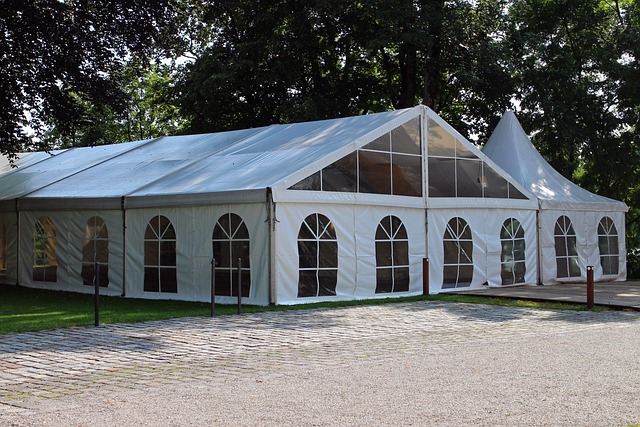Event Planning for Local Businesses requires setting clear objectives like collaboration promotion or industry-specific education. These goals guide every aspect, from speaker selection to promotional strategies, ensuring alignment with desired outcomes. Understanding the target audience through market research is also crucial, allowing planners to tailor attractions based on industry interests and demographics, thereby enhancing attendance, engagement, and community connections.
“Elevate your networking events with strategic planning for maximum impact on local businesses. This guide uncovers the secrets to efficient event management, ensuring every minute and resource is optimized. From setting clear objectives like brand awareness or lead generation to choosing venues that foster interaction and designing layouts for engaging conversations, we delve into proven strategies. Discover how effective promotion through targeted outreach and interactive elements can revolutionize your events, leaving a lasting impression on attendees and fostering meaningful connections.”
- Setting Clear Objectives
- – Defining the purpose of the event: brand awareness, lead generation, community building, etc.
- – Identifying target audiences and aligning networking goals with their interests.
Setting Clear Objectives

When planning networking events for local businesses, setting clear objectives is paramount. Before sending out invitations or designing the venue, event organizers should define specific goals tailored to the community and participating companies. These objectives could range from fostering collaboration among local entrepreneurs to promoting a particular industry within the region. By establishing these targets, planners can ensure every aspect of the event—from speaker selection to promotional strategies—aligns with the desired outcomes.
For instance, if the focus is on creating business partnerships, the planning team should invite potential allies and industry influencers who share this vision. Event agendas could then be structured around interactive workshops or panel discussions that encourage collaboration. Conversely, if the event aims to educate local businesses about digital marketing trends, speakers and content should cater to this niche, providing tangible takeaways for attendees. This strategic approach ensures that every participant leaves with a clear purpose, enhancing the overall effectiveness of the event in terms of Event Planning for Local Businesses.
– Defining the purpose of the event: brand awareness, lead generation, community building, etc.

The first step in efficient event planning for local businesses is clearly defining the purpose of the gathering. Is it primarily focused on increasing brand awareness, showcasing new products or services, or generating leads? Or perhaps the goal is more community-oriented, aiming to build and strengthen connections within a specific industry or niche? For instance, a local tech startup might host an event with the primary objective of introducing their innovative software solutions to potential investors and partners. In contrast, a non-profit organization could organize a meetup to foster collaboration among businesses committed to sustainable practices.
A well-defined purpose guides every aspect of planning, from choosing the right venue and setting realistic budgets to crafting engaging agendas and selecting appropriate promotional channels. Understanding the desired outcome allows event organizers to attract the target audience, ensuring that attendees are not only interested but also invested in achieving the event’s objectives. This strategic approach significantly enhances the overall success of networking events for local businesses.
– Identifying target audiences and aligning networking goals with their interests.

When planning networking events for local businesses, understanding your target audience is key. Before setting a date and choosing a venue, Event Planners should conduct thorough market research to identify the businesses and professionals most likely to benefit from the event. This involves aligning networking goals with specific industry interests and demographics. For instance, a tech-focused meetup in a city with a thriving startup scene will attract entrepreneurs and investors differently than an agricultural gathering in a rural area.
By tailoring the event to these interests, planners can ensure higher attendance and engagement. It’s about creating an environment where the right people feel compelled to attend, network, and build meaningful connections. This strategic approach not only enhances the event’s success but also fosters more productive relationships between local businesses, ultimately contributing to a vibrant and interconnected community for Event Planning in Local Businesses.
Efficiently planned networking events can significantly boost local businesses’ growth by fostering meaningful connections and achieving well-defined objectives. By setting clear goals, such as brand awareness, lead generation, or community building, and tailoring these to the interests of your target audience, you create an environment conducive to productive interactions. This strategic approach ensures that your event planning for local businesses is not just an assembly but a dynamic platform for mutually beneficial relationships to form and flourish.














